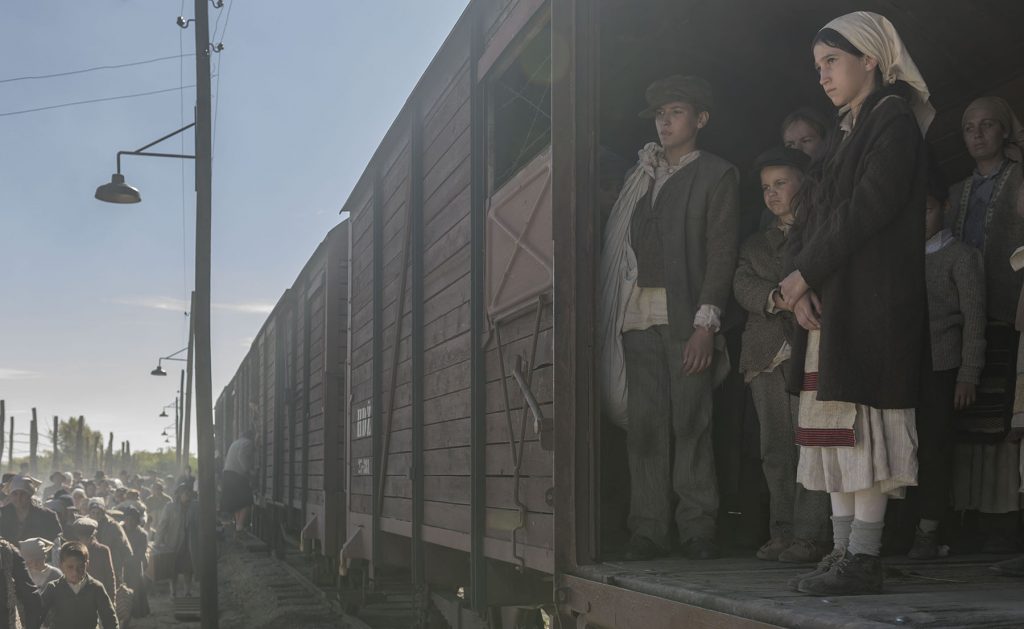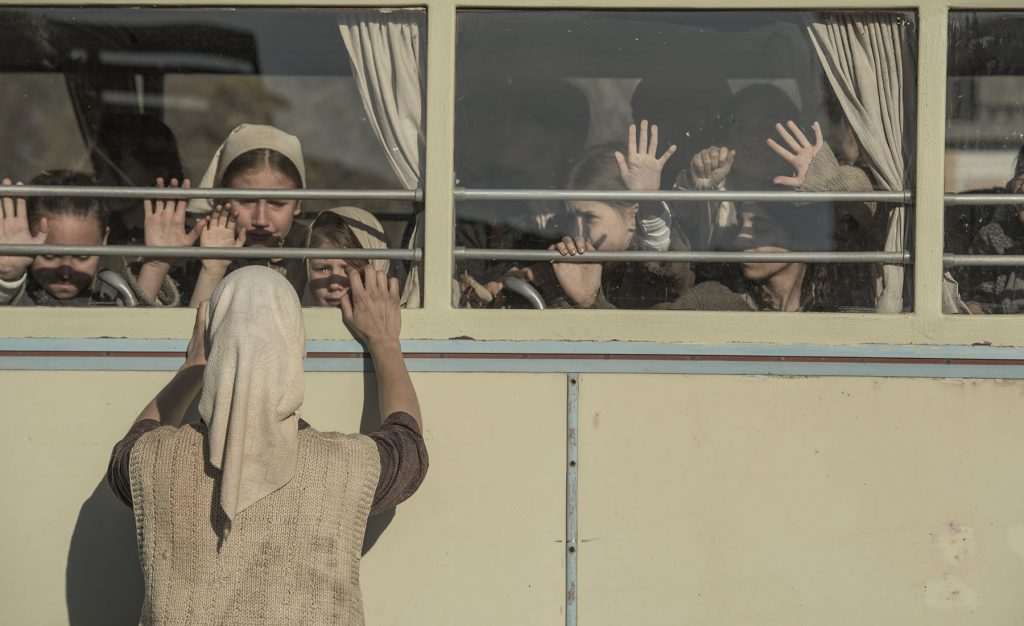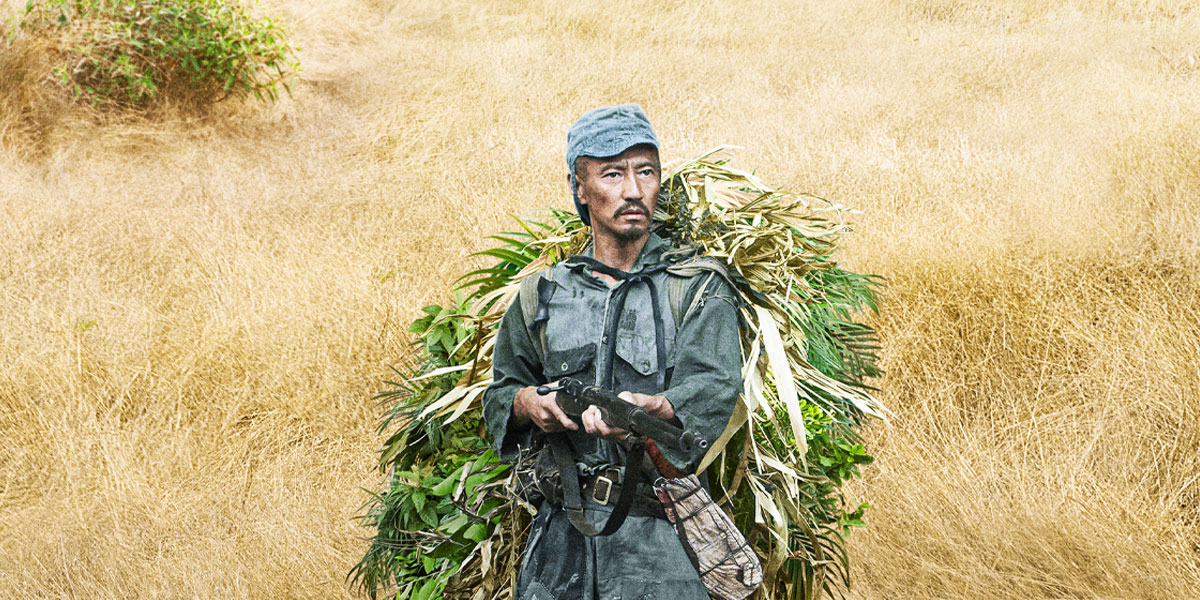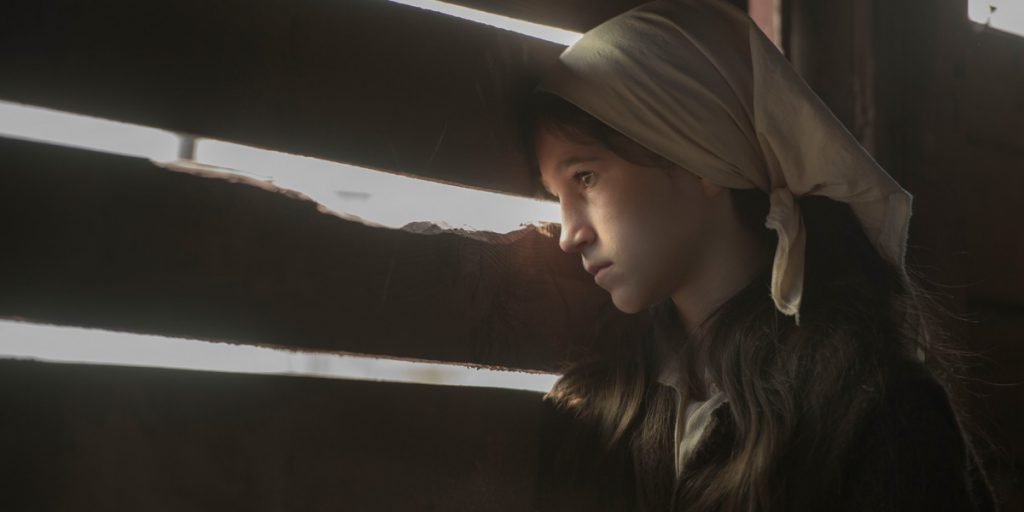Dara of Jasenovac boats beautifully crafted shots, an immensely talented cast, and all of the sorrow you would expect from a holocaust movie.
We’re all familiar with the Holocaust: the extermination of millions of Jews, Roma, homosexuals, disabled folks, and other undesireables at the hands of the Nazis. Its impact has been well-documented in museums, books, and several films. Due to my own education and upbringing, I always associated Holocaust victims with Poland, Germany, and France, as those were the stories and voices that typically made their way to the US. I don’t normally associate the Balkans with some of the greatest atrocities the world has ever seen, so I was interested in reviewing Dara of Jasenovac, a film whose goal is to give a voice to those victims some of us may not even know about.
Dara of Jasenovac follows the titular Dara (Biljana Čekić), a ten-year-old Serbian girl sent to the Jasenovac concentration camp with her family during the Holocaust. The movie centers on her efforts to survive and protect her infant brother, in spite of the constant dangers and death surrounding them.
Right off the bat, I need to get something out of the way: there is apparently quite a bit of conflict in the discourse between Serbians and Croatians surrounding this movie. One camp argues that Dara’s portrayal of the Croatians is skewed too negatively, with Jay Weissberg of Variety describing the film as “Anti-Croatian and Anti-Catholic.” The other camp argues that the former’s critiques of the movie are bad-faith, with Maja Gojković, Serbia’s minister of Culture and Information, suggesting that the negative reviews have been lobbied by Croatia.
I just wanted to let all of you know now that I do not have a horse in this race. I know very little about the Balkans in general; I had never heard of the Ustasha, Croatia’s own militant fascist organization, prior to watching this movie. I didn’t even know about the controversies surrounding Dara until I started doing research for this review. As always, my intention is to be as honest and as objective as I can in my writing.

Now then, let’s delve into the film in front of us, because it is excellent. First, Dara of Jasenovac is a visually arresting movie. From the opening shot, it quickly establishes its use of long tracking shots coupled with silhouette lighting, an effective trick the film uses often, but not so often that it feels lazy or tired. Director Predrag Antonijević also does a commendable job creating visual tableaus contrasting the Serbs, Ustasha, and even prisoners with low-ranking positions of authority.
The soundtrack is great, sparingly implemented throughout the film to maintain the focus on the tension and drama on screen. During those moments when it is used, it’s typically a score of soft piano and strings playing prolonged notes to accentuate the somber or tense atmosphere of a given scene. It is simple, if a touch predictable, but eminently effective at emphasizing the action on screen.
Dara’s entire cast needs to be applauded for their work: it’s a heavy movie that deals with some of the darkest subject matter imaginable, and, considering a sizable portion of the cast are children, they handle it very well. Finding excellent child actors is already difficult, but finding several and having them effectively portray some of the darkest moments in human history is truly a feat in and of itself. Speaking of child actors, Biljana Čekić gives an exceptional performance for someone so young; she was eleven years old during shooting. She perfectly encapsulates the lost innocence of a child in a concentration camp, mixing the desperation in her need to protect her baby brother, and a jarring stoicism cultivated through cruelty.
You may be looking at my last paragraph and noticing one particular sentence: “a sizable portion of the cast are children.” It’s true, a lot of the cast are children because the Jasenovac Concentration Camp, according to the film, held a high number of women and children, leading the film to focus on the experiences of children in concentration camps. Yes, it is as heartbreaking as it sounds.

That is the primary caveat that comes with this movie: it is among the saddest movies I have ever seen in my life. Due to my past work with kids, I have a soft spot for children, and watching the Ustasha’s cruelty towards the young and innocent was difficult the same way watching Schindler’s List was difficult. There are moments of hope and levity throughout, but they are always fleeting, and typically sandwiched between sequences of misery. Dara starts off sad, and does not let up. That’s actually one point of critique I could make about Dara: the misery and cruelty portrayed in the movie are so graphic and constant, I can see how someone could make the argument that the film sensationalizes the dark events on which the film is based. I would argue that it’s not necessarily the case: Dara is based on the first-hand testimonies of people who lived in Jasenovac, and for someone like me with no prior knowledge of what was happening in the Balkans during World War 2, it is an illuminating experience that will make you want to learn more about what happened in the region during that time.
Dara is a challenging movie to get through. It’s challenging in a good way, but you need to be prepared for what you’re about to see: if you’re not in a good place mentally or emotionally, or if you struggle with sad or upsetting material in general, I would not blame you for sitting this one out for now, and waiting until you think you are better equipped to watch something like this. If you think you’re ready to give this a try, then I would highly recommend watching it. It’s especially poignant now for American audiences: as of writing this review, despite two administration changes since their creation, there are still thousands of migrant children locked in cages within our borders. The media has done it’s damndest to downplay the cruelty of this action, but I consider Dara of Jasenovac a warning. When children are forcibly removed from their families and put into detention centers without decent health conditions within our own borders, what will future global generations think of a nation that weeps at other countries’ cruelty towards children, while staying blind to its own misdeeds?
Dara of Jasenovac is now available to watch on digital and on demand.

 loudandclearreviews.com
loudandclearreviews.com
